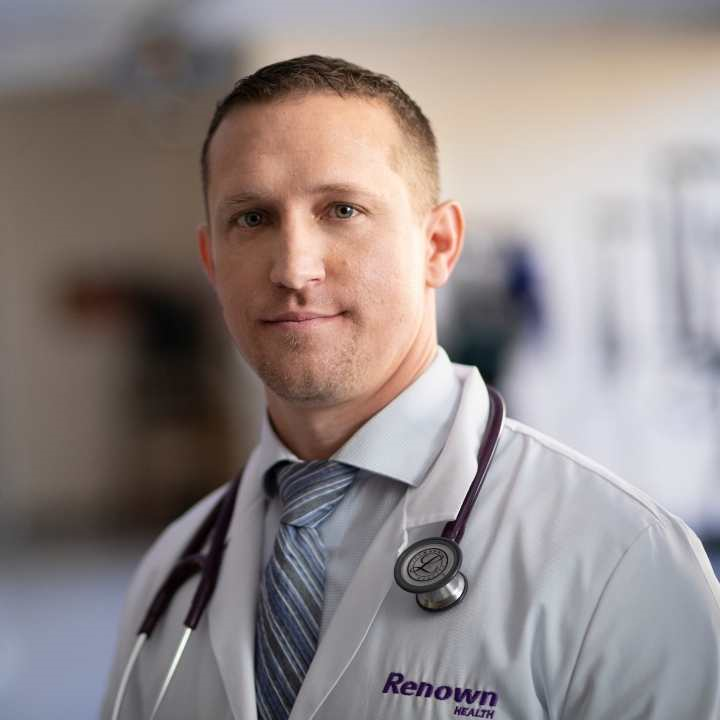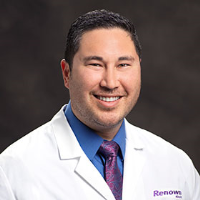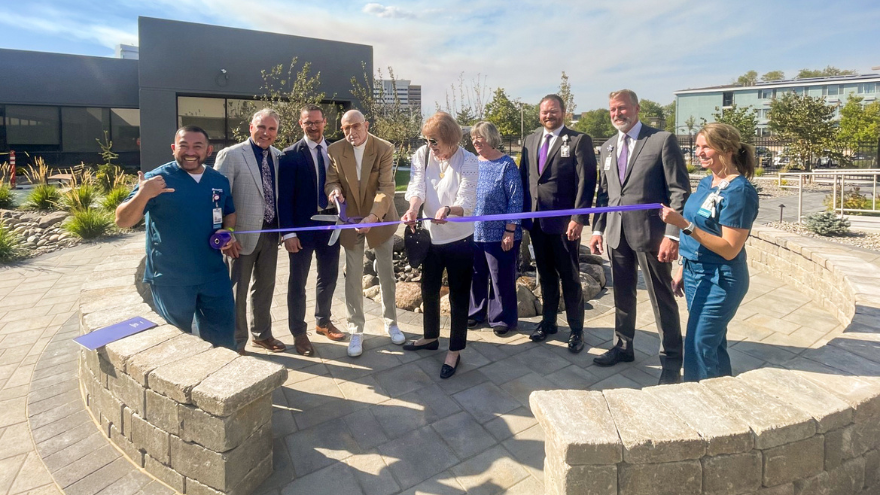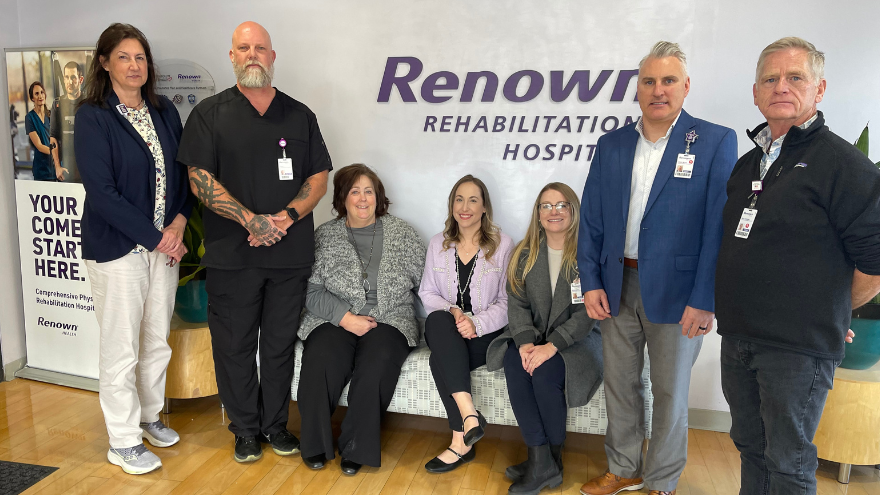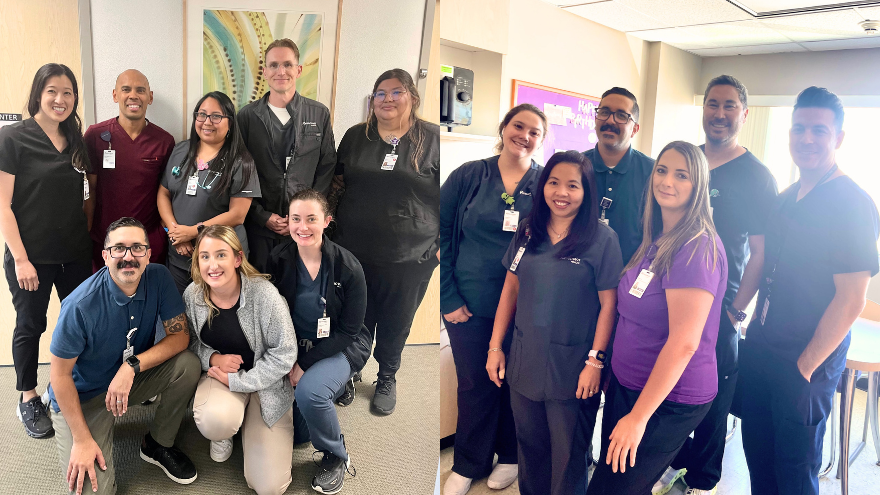What is Physiatry?
Physiatry (fuh·zee·a·tree) encompasses the diagnosis, prevention and treatment of all types of disabilities related to the brain, nerves, bones and muscles. The goal is to maximize physical functioning, significantly decrease or eliminate pain, foster independence and improve the quality of life for those with a disability, chronic pain and physical impairments.
To see if you may benefit from treatment, ask your primary care physician for a referral to the Renown Physiatry Neuro-Rehabilitation Clinic. For more information, please call: 775-982-3608
Who We Treat
Patients with functional deficits and secondary medical conditions as a result of the following:- Stroke
- Spinal cord injury
- Brain injury
- Amputees
- Other patients with neurologic diagnoses
Conditions We Treat
Neuropathic Pain
Millions of patients suffer from neurological diseases every year that affect their muscles, strength and sensation. This includes stroke, brain Injury, multiple sclerosis and spinal cord injury. In some cases, patients suffer from neuropathic pain as a result of their neurological disease.Symptoms may manifest as tingling, pins and needles, burning, shock-like sensations and deep aches There may be options to help reduce these symptoms and increase quality of life.
Healthcare After Stroke
Every year over 500,000 people suffer from a new stroke. Many patients are left with lasting impairments that significantly affect their function and quality of life. Symptoms following a stroke may include:- Abnormal muscle tightness on the affected side
- Nerve pain on the affected side
- Changes in bowel or bladder habits
- Need for specialized equipment
- Fatigue
- Depression
Spasticity Treatment
Millions of patients are impacted by neurological diseases such as strokes, brain injuries, spinal cord injuries and multiple sclerosis. As a result, many patients develop an increase in their muscle tone, which they cannot control. This is called spasticity and can present as tightness in muscle groups, uncontrolled muscle spasms, rigid extremities and resistance to stretching.Spasticity can have a significant effect on a person’s ability to perform daily functions such as:
- Getting out of bed
- Walking or using an assistive device for locomotion
- Carrying out daily hygiene tasks
- Making meals and eating
Programs & Services
- Acute Rehabilitation
- Acute Care Therapy
- Epilepsy Program
- Headache Program
- Interventional Neuroradiology
- Memory Disorders Program
- Movement Disorders Program
- Multiple Sclerosis Program
- Neurodiagnostics
- Outpatient Therapy
- Neuro ICU
- Neurology
- Neurosciences
- Neurosciences Clinical Trials
- Neurosurgery
- Neurotrauma
- Neurovascular & Stroke Program
- Physiatry
- Spine, Sports & Pain Management
Related Providers
Stephanie Jones, DO
Phys Med and Rehab
Benjamin Pence, DO
Phys Med and Rehab
Casey Keating, MD
Phys Med and Rehab
Last fall, Renown Rehabilitation Hospital unveiled the Rehabilitation Therapy Garden, supported by the Estelle J. Kelsey Foundation , a space designed to support rehabilitation patients on their path to recovery. Made possible through the...
Transition into the new year with our Transitional Care Coordinators at Renown Rehabilitation Hospital! As a patient, your healthcare journey may seem overwhelming and confusing. Add a significant injury to the equation, and now you...
Pain is a top reason that Americans seek access to healthcare. In fact, according to the U.S. Pain Foundation , chronic pain affects nearly 50 million people across the country. More than likely, you know someone who has been impacted by...

